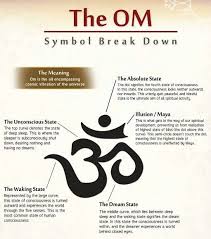
People suffering from depression can reap the many benefits of yoga. Yoga can improve awareness and help relieve symptoms. An individual suffering from depression will find it helpful to practice yoga on a regular basis. Yoga can help with depression and improve mood. Yoga can be used to help with depression symptoms. It can also improve their overall health and well-being. This article will discuss the many benefits of yoga for people suffering from depression.
While the exact mechanism of how yoga can help people suffering from depression is not known, there are many benefits associated with this practice. Yoga for depression benefits may be similar to other types of exercise. After performing the poses, participants with major depressive symptoms reported a decrease in pain and increased muscle soreness. A second study found that yoga practice reduced worry, rumination and worrying. It also lowers stress levels and reduces worry and rumination. In a second study, participants showed an improvement in their anxiety levels and depression.
Depression is one of the most serious mental disorders. Treatment for depression typically includes medication and counseling. Previous studies have shown that combining these two approaches produces better results than one alone. This study compared the effects of yoga and traditional therapies on depression. These treatments are generally more expensive. Researchers stated that further studies are required to see if yoga is beneficial for people suffering from depression.

Yoga for depression benefits include improved sleep quality and anxiety reduction. Participants also reported higher energy and decreased anxiety symptoms. Over a three-month period, both groups saw improvements. The researchers found encouraging results that show yoga's long-term benefits. This type of treatment is recommended for those suffering from major depression. The study's findings are the first to be validated, and further studies are needed to prove whether or not it is effective for depression.
People suffering from depression can reap many benefits from yoga. It improves psychological well-being, which helps a person overcome depression. It has been proven to reduce anxiety and stress. In addition, the benefits of yoga for depression are both personal and professional. They can work together to combat symptoms of the mental illness and enhance a person's quality of life. They can also work together to improve quality of life, prevent isolation and help each other.
Yoga for depression may not only lower anxiety but also improve mental health. Yoga for mild depression has been shown to lower symptoms. Additionally, it has been shown to lower anxiety, schizophrenia, and PTSD symptoms. For people suffering from severe mental illnesses, yoga therapy can be very beneficial. It is a good idea to consult a qualified instructor before you start a yoga program for depression.
Recent research has shown that yoga can ease depression symptoms. Yoga can be a great way to improve your health and well being. Its long-standing history is one of its greatest assets. As a result, the benefits of yoga for depression are significant. Yoga not only improves the body and mind but also reduces stress levels and anxiety. A person can focus on their thoughts by practicing yoga.

Yoga can help those suffering from depression. Although yoga cannot replace traditional treatments, it can help. In a number of cases, meditation combined with breathing exercises has proven to be beneficial. Yoga practice is nonjudgmental and nonstressful. This can help those with depression reach their goals. Yoga can provide significant benefits for sufferers and may even help them find relief from depression.
Someone suffering from depression might feel helpless as they don't see a brighter tomorrow. Yoga can be a great option for people suffering from depression. It can also help them to manage their weight. Unlike many medications, yoga can be prescribed by a physician or therapist. Yoga is proven to improve your overall health and reduce depression symptoms. It is a way of dealing with the symptoms of the disorder. It's an excellent way to feel healthier both mentally & physically.
FAQ
How many calories do I need to eat each day?
It varies from one person to another. On average, you need 2000 to 2500 calories per days. It's important to assess your life style, gender, age and height in order to determine how much calories you need.
What is the best way to lose weight?
It's not easy to lose weight. Many people give up because they don’t know what else to do.
To lose that extra weight, however, there are simple steps you could take.
First, make sure you eat less calories than you burn. If you consume more calories than what you burn, you will gain weight.
To burn all those calories, you should also start exercising. You can choose from different types of exercises, including jogging, walking, cycling, dancing, etc.
Third, you must stop smoking cigarettes and drinking alcohol. These habits lead to a higher intake of calories than usual.
Fourth, cut down on junk food and fatty foods. They can be replaced by healthier options, such as fruits and vegetables, lean meats or whole grains, legumes, seeds, beans, and nuts.
Fifth, change your lifestyle. For example, you may need to get up early every morning to exercise before work.
Sixth, discipline and following a diet plan are essential.
Lastly, you can join a gym or attend an aerobics class to burn those excess calories.
You'll quickly start to notice results if you follow these simple tips.
Which workout is the most effective for men
The answer depends on what you are looking for. If you want to lose weight, cardio workouts are great because they burn calories faster than strength training exercises.
However, strength training can be beneficial if you only want to build muscle mass. It increases lean mass.
Both types of exercise have proven benefits if you want to improve your overall health.
If you're looking to get fit fast, I recommend doing HIIT or sprint interval training. This type is great for burning fat fast by increasing metabolism. It will also help you stay motivated to train even when your body is tired.
Statistics
- An estimated calorie range for moderately active adult males falls between 2,200 to 2,800 calories per day, depending on age. (eatright.org)
- Get free shipping and 25% off today. (healthline.com)
- Candidates and applicants must pass all four tests at 70% (minimum level) to graduate from Basic Deputy U.S. Marshal (BDUSM) Training. (usmarshals.gov)
- The PRS enabled risk stratification for overall prostate cancer and lethal disease with a four-fold difference between men in the highest and lowest quartiles (HR, 4.32; 95% confidence interval [CI], 3.16-5.89). (pubmed.ncbi.nlm.nih.gov)
- Cardmembers earn 5% Back at Amazon.com with a Prime Credit Card. (amazon.com)
External Links
How To
What nutrients does a person need every day?
Healthy growth and development of men requires healthy nutrition. The body requires vitamins and minerals, protein, carbohydrates, fats (fats), water, fiber, as well other essential elements.
You also need specific nutrients for different times in the day. Your body makes hormones, antibodies and enzymes when you are asleep. When you get up, protein is used to repair and build muscle.
At night, your body breaks down fat and stores the extra energy as glycogen. During this time, your body needs fewer calories but still needs sufficient nutrients. If you feel hungry, you may consider having a snack during the evening.
For your body to function properly, it needs adequate amounts of protein and carbs. If you exercise hard, you might feel muscle soreness.
To prevent this, you must consume carbs and protein within 2 hours of training. To provide energy, your body will begin to break down stored glycogen.
Also, protein must be consumed immediately after your workouts. This prevents muscle tissue loss that happens while you sleep.
Your body makes lactic acid when you are doing intense physical activities. It is a form of lactic acid that builds up in the bloodstream. This causes fatigue. Eat foods high in carbohydrate, such as fruits, vegetables, to avoid this.
Carbohydrates provide energy for your body to recover after strenuous exercise.
A healthy diet should include lean meats such as fish, eggs and milk, cheese, yogurts, beans, seeds, nuts, and beans.
All of these foods contain high quality protein. Protein is important for muscle growth and repair. Protein is also necessary for the production of sex hormones such as testosterone.
You also need enough dietary fats to maintain good skin, hair, nails, and joints. Healthy men require between 20% and 35% of total caloric intake from fat.
Fat protects your heart from cancer and keeps it strong. It helps keep your brain working properly.
Most of the fat you need can be obtained from vegetable oils, including sunflower oil (or soybean oil), peanut oil, peanut oil, soybean oil, and peanut oil.
These oils contain high levels of monounsaturated fat acids (MUFAs). MUFAs reduce cholesterol and inflammation. They protect your cells from damage by free radicals.
Saturated fats (SFAs) are found mostly in animal products like meat, dairy products, and butter. SFAs can raise LDL ("bad") cholesterol levels and increase triglycerides. They promote weight gain and abdominal fat.
Polyunsaturated oils (PUFAs), are found in plant-based foods like nuts, seeds and vegetable oils. PUFAs reduce inflammation and improve cardiovascular function. They also reduce blood sugar, cholesterol, and other inflammatory factors.
Erectile dysfunction is common in men with low HDL ("good") cholesterol. Consuming high amounts of saturated fats can increase bad cholesterol and lower good cholesterol.
Men who eat large quantities of red meats or pork may develop prostate problems. If cooked at high temperatures, the nitrates become nitrosamines. These compounds can lead to cancer.
Many processed meats are high in nitrites, and other dangerous chemicals. You should avoid them.
The American Heart Association recommends limiting red meat intake to two meals per week. Instead, choose poultry or fish, beans, tofu and whole grain bread.